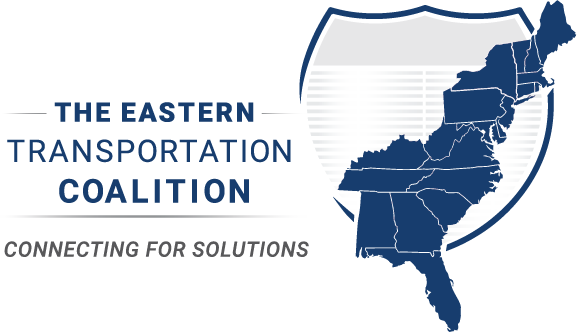About the M-95 Marine Highway Corridor
The Eastern Transportation Coalition’s waterside system was selected as a Marine Highway Corridor under the U.S. Department of Transportation’s (USDOT’s) America’s Marine Highway Program, an initiative to move more cargo on the water rather than on crowded highways. As the sponsor of the M-95 Marine Highway Corridor, the Eastern Transportation Coalition will be assisted by the USDOT Maritime Administration in developing transportation services and with identifying potential freight and passenger markets. The 1,925 mile-long I-95 Corridor is the major North-South landside freight corridor on the East Coast. The USDOT identified more than a dozen major freight truck bottlenecks along this route, along with significant critical rail congestion along the upper portions. Projections of future freight volumes indicate increasing freight congestion challenges, with limited opportunity to increase landside capacity. The Corridor is home to 15 of the largest 50 marine ports in the United States (as ranked by total throughput). These ports handle approximately 582 million short tons of cargo, or 26 percent of the national total. Much of this freight begins or ends its journeys with an I-95 transit. Fortunately, the East coast also possesses a host of waterways, bays, rivers, and the Atlantic coast itself. The Corridor is also lined with less congested, smaller niche ports that could play a vital part in the developing marine highway service network. While several Marine Highway operations already serve this corridor, there is significant opportunity for expansion to help address growing congestion, reduce greenhouse gas emissions, conserve energy, and lower landside infrastructure maintenance costs.
